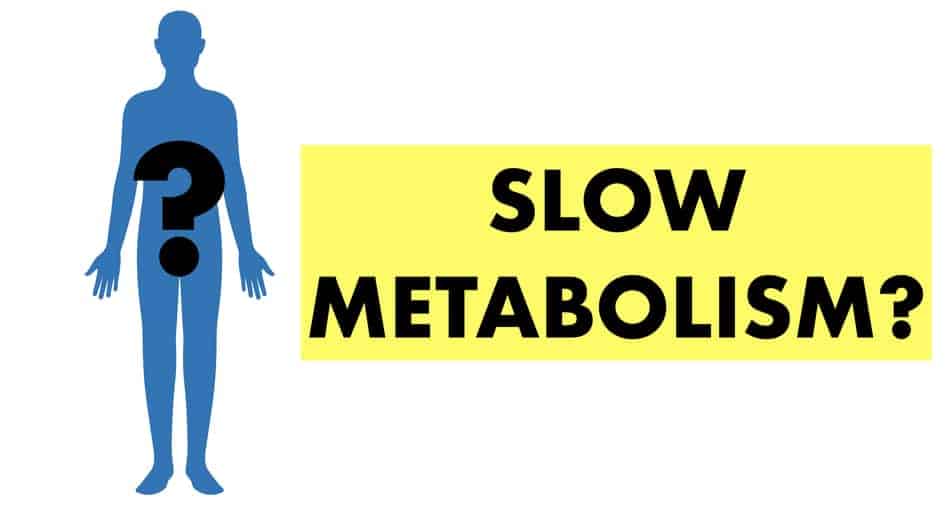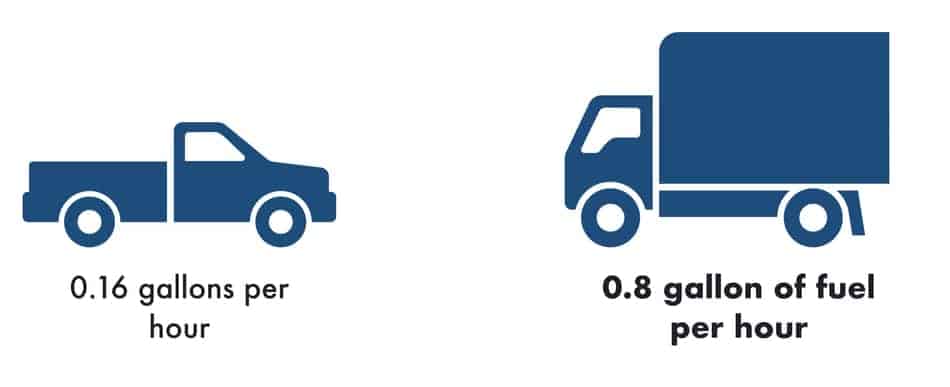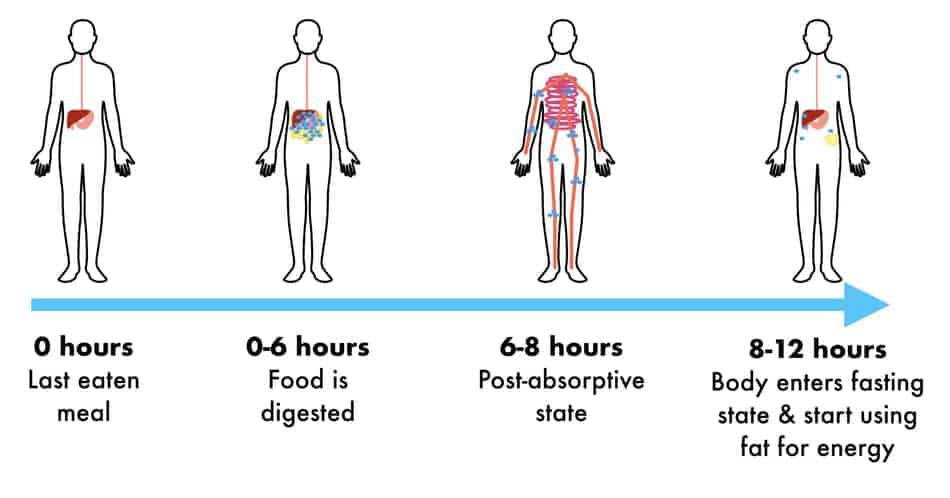If you’re concern about your metabolism while doing OMAD this article will explain everything you need to know.
Doing OMAD won’t slow down your metabolism. Metabolism is the ability of the body to convert food into energy through a series of chemical reactions. The caloric restriction doesn’t affect or damage the effectiveness of how well your body will convert and use the nutrients from food.
Any weight loss reduces metabolic rate. Doesn’t matter if that’s from fasting, counting calories, or a low-carb diet. But reduced metabolic rate doesn’t mean your metabolism is “slower” or “damaged”. It means it uses fewer calories.

Can OMAD Ruin Metabolism?
One meal a day cannot ruin your metabolism. Losing weight causes less energy expenditure by the body. Therefore it doesn’t matter if you’re eating one meal a day, 3 square meals, or snacking throughout the day. As long as you’re losing weight, your body will adapt and use less energy.
Many people are worried that intermittent fasting will ruin their metabolism. But the reality is that your body has an extremely well adaptive system. So depending on how much energy you take in, it will accommodate the changes and reorganize to fit into the new normal.
Our bodies adapt dynamically, depending on how much energy is coming in from the food. This is called metabolic adaptation (source).
When we eat more, we tend to move more, so our body uses more fuel. When we eat less, we use less fuel. Larger people typically burn more calories, therefore they use more energy. As people lose weight, their energy expenditure declines.
It’s a dynamic process. This means anyone who loses weight will start to use less and less energy. You will burn fewer calories after any weight loss. Doesn’t matter if you lost weight on the Keto diet, intermittent fasting, or Carnivore diet. The moment you weigh less, your body needs less energy.
Using less energy doesn’t mean you have ruined or slowed down your metabolism.
If you have more weight, your body has to work extra hard to locomote you around. This process costs extra fuel. So when you reduce excess weight, automatically there won’t be a need for more energy.
Make sense?

It’s like imagine when you drive a truck for 600 miles every day. When your track is loaded, it will burn substantially more calories, comparing to when it’s empty. Or when you drive alone in your car you will burn less energy, comparing to when you drive with extra 4 people.
After you reduce the load, your car adjusts and starts to burn less fuel. Load reduction won’t affect the engine efficiency to burn fuel. It will affect its economy.
It means that after you reduce excess weight your body will have no problem with breaking down the food. It will just use less than before.
Is OMAD Bad For Metabolism?
OMAD is not bad for metabolism because it doesn’t differ from any other caloric restriction approach. Any diet that allows you to eat less food will impact your weight loss. And as we lose weight, several changes are happening in the body.
Intermittent fasting is a natural and normal process. All organisms have some sort of mechanism to survive (or thrive) in the times when they’re eating less.
The word “intermittent” is really important. It doesn’t mean prolonged or extensive. It means from time to time. It doesn’t mean forever or always. It means occasionally, or sometimes.

Metabolism is the ability to extract energy from food, and use that energy for every cell in the body. Intermittent fasting for a limited amount of time won’t affect how well your body can extract nutrients from the food.
OMAD And Your Metabolism
While doing OMAD (or any other form of intermittent fasting) is normal for your metabolism, intermittent fasting as a permanent lifestyle is not for everyone. What happens to the body after prolonged caloric restriction?
Hormonal Changes
There are studies showing changes that happen after a prolonged caloric deficit. This means, if you’re on calorie restriction for the long-haul, you may experience some hormonal disturbance (source).
Long-term energy restriction can downregulate hormones like leptin, thyroid, elevate plasma cortisol levels, and reduce the production of reproductive hormones (e.g. testosterone, estrogen). But that is due to any excessive caloric restriction for a prolonged period of time.
Aging Process
Aging is associated with body composition changes. Accumulation of fat-reduced aerobic and muscular strength, loss of muscle mass, decreased protein synthesis, insulin resistance, altered lipid profile, bone loss, and decreased libido.
Intermittent fasting has been shown to delays the incidence of age-related diseases including diabetes, cancers, and cardiovascular disease (source).
Also, studies showed that intermittent fasting plays a major role in the rate of aging and longevity. For instance, a calorie restriction ultimately leads to less oxidative damage can retard the aging process (source).
In other words, calorie restriction increase longevity (source).
Other Metabolic Changes
When we eat less energy than we need physiologically for an extended period of time, our bodies will eventually respond to other metabolic adaptations.
People who are serial dieters, that’s been restraining from food on and off for several years can notice that they feel more hungry during the day and feel less satisfied after they eat. People who’ve been on a calorie deficit for months can notice that they are feeling more lethargic and less likely to stay active.
As less food is coming for an extended period of time, the protein synthesis lowers so our body can use fewer proteins for recovery and repair.
With less protein synthesis and lower physical activity, we start to see a drop in the lean body mass, followed by the increase in fat body mass. This means our body composition changes.
People may notice after a period of time that they feel cold and their digestions slow don’t. This is due to thermoregulation and peristaltic mobility.
Other Psychological Changes
So intermittent fasting can be life-saving for some people, and it can really positively impact their quality of life. However, it is not one size fits all. Because apart from metabolic changes, there are also psychological changes.
It means that having one meal a day can cause some emotional reaction (due to hormonal changes, like ghrelin or cortisol). Some people, who already have a lot of things going on in their life, may have a hard time adapting to any additional distress that comes with intermittent fasting.
For instance, a 45-yeard old, overweight, single mother of three, that works two full-time jobs and has financial problems, will have a hard time with any other extra stress. Doesn’t matter if that’s from fasting or from high-intensity exercise or something else.
But a 25-year old nurse that is fresh out of collage, no kids, and wants to lose weight, may find one meal a day works like a charm.
That’s why some people thrive on one meal a day. And other feel overwhelmed and stressed out. It’s all about what else is going on in your life.
Conclusion
Having one meal a day is no different from doing a conventional calorie restriction diet. It cannot damage or affect the capability of your body to metabolize the food.
Metabolism does change after weight loss. This means it will use fewer calories than before, but it doesn’t mean it’s broken or damaged.
